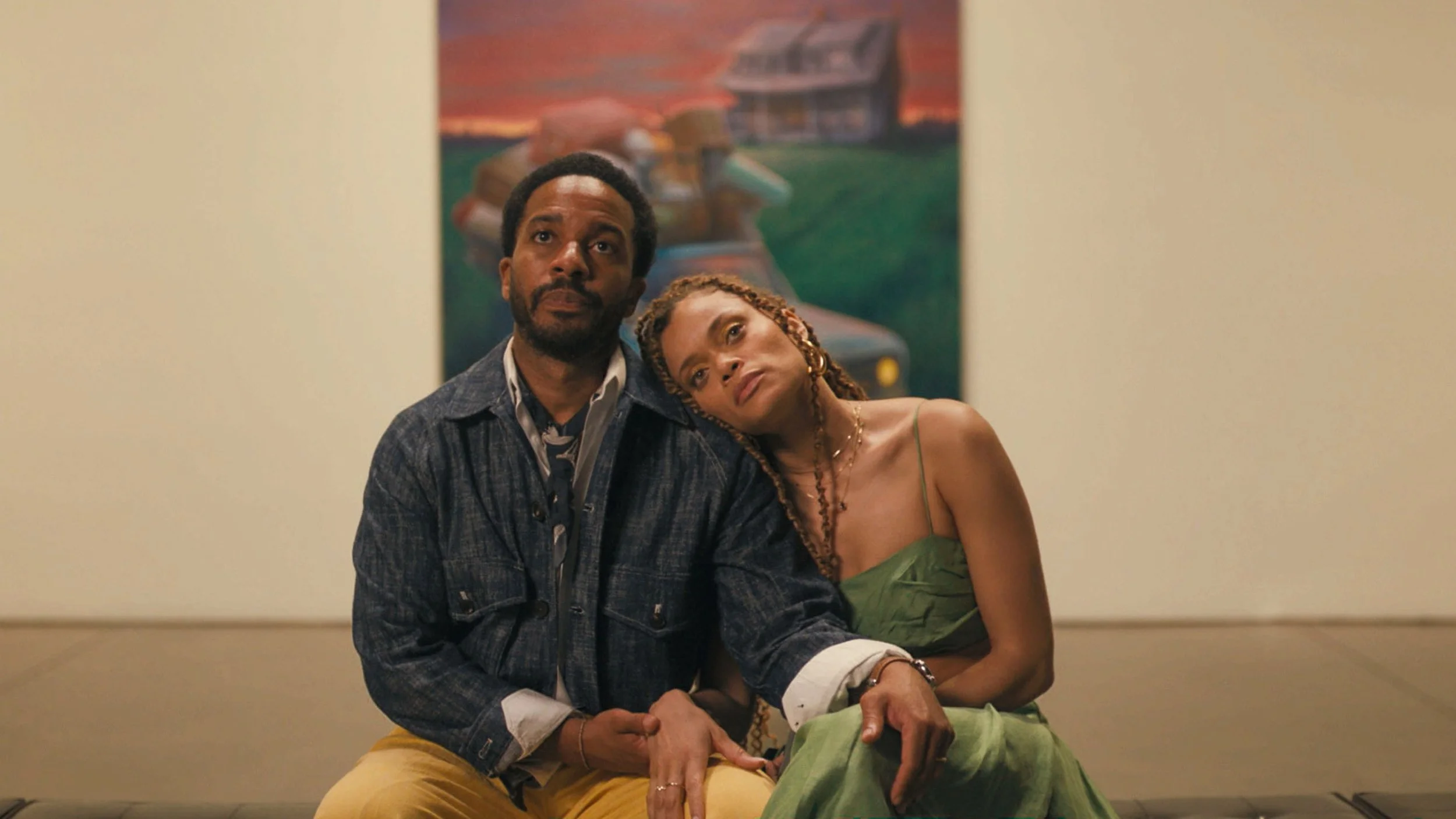Sundance 2024 Exclusive: Director Titus Kaphar talks Exhibiting Forgiveness
Making it World Premiere at the 2024 Sundance Film Festival was the drama Exhibiting Forgiveness, the lauded directorial debut by renowned artist Titus Kaphar starring Spirit Award Winner and SAG Nominee André Holland, Tony Award Nominee John Earl Jelks, Oscar nominee Andra Day and Oscar Nominee Aunjanue Ellis-Taylor.
Tarrell Rodin (Holland) is an admired American painter who lives with his wife, singer-songwriter Aisha (Day), and young son, Jermaine. His artwork excavates beauty from the anguish of his youth, keeping past wounds at bay. His path to success is derailed by an unexpected visit from his estranged father, La’Ron (Jelks), a recovering addict desperate to reconcile.
Kaphar’s paintings are multilayered, sometimes sculptural, through his manipulations: slashes, erasures, and swipes of paint aim to reflect the ways in which certain histories are obscured, lost, or waiting to be revealed.
Blackfilmandtv.com's Wilson Morales talks to writer-director Titus Kaphar about Exhibiting Forgiveness
As a first time filmmaker, what led you to put in this story using art?
Titus Kaphar: The truth of the matter, and Wilson, stop pretending like you don't know this. The truth of the matter is that I'm a painter, and that's where I start with most of my creative process. Many things begin as sketches in a sketchbook.
There were sketches in my sketchbook that became the paintings that sort of inspired what we see on the screen. But I wanted to try to find a way to bring people who are not creative into what it feels like to have artwork force its way into your consciousness in your day-to-day life. And this idea of the young boy pushing the paintings into the frame came to me when I was in the writing process, and it just seemed to make so much sense. And that's the thing. So the art, you got them. It's like being a singer trying to do film or, you know, or an actor trying to sing.
What did you learn in the process of trying to put this story together? Because you had one part that you wanted to bring in there, but now we got to get the writing part of it as well as the directing, when you got to do both and wear this many hats.
Titus Kaphar: The thing that I learned is that I was going to have to be honest and more vulnerable. That's the truth, man. I felt like at a certain point, if you had asked me about my father, I would have told you that my father is the villain of my narrative. And that's just not true. But that's something that I discovered. The fact that that's not true is something that I discovered in the writing process. It wasn't like I felt that way before. It was having to ask myself that question that any writer has to ask of a character. Why does he do that? Why does he want that? And in doing that and asking those questions, I began to realize that my father is actually a victim of the circumstance and that for better or worse, he really did try to do his best.
That was the revelation to me, that my father is not the villain of my narrative and that my father deserves compassion. And so I'm ashamed to say that it took this project for me to be able to come to that conclusion. But it is in fact the truth. I think the key word, because I don't think anyone's born a villain. And although there are people out there who's never demonstrated that and so forth, but no one's really born a villain. And when you see these projects, the key word is showing the humanity, showing that there was a side to them before they became who they are.
What do you want audiences to get out of this?
Titus Kaphar: So there are going to be some people that say, I had this similar relationship, whether it's my dad or my mom and so forth. And either we're still not on the same page or we're trying to get there. But is there anything you want them to get from this movie? Man, that has been the experience. I got to tell you, since the last time we spoke, I've shown this film a dozen times in dozens of places. And whether it's white audiences, black audience, whatever, people are coming up to me after and they're saying, you know what? This is my story too. And that has been very, very much the surprise for me. What I want people to take away from this film is hope. You know, there are some difficult things that we deal with for sure, but this film is ultimately about one artist's journey towards bringing hope and healing to himself and to his family. The other thing that I want people to take away from this film is a different understanding of forgiveness.
We generally talk about this idea of forgive and forget, the kind of forgiveness that allows you to play games in your head where you pretend like a tragic thing that happened to you didn't actually happen to you so that you can reenter into this relationship. I'm not asking people to do that and I don't think the film asks people to do that. We're talking about a kind of forgiveness that allows you the space to unburden yourself, to say in the circumstance, I forgive you. I no longer hold this debt against you. You are free, but I am going that direction and it seems like you're going a different direction and that is okay. That's not generally the kind of forgiveness that we talk about.

